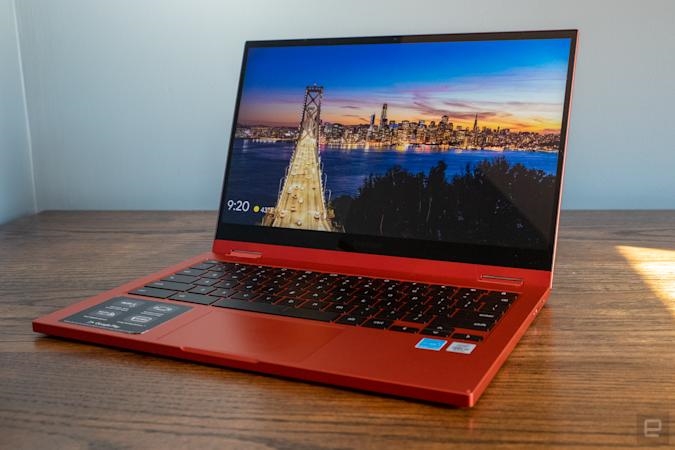Google’s Live Caption feature comes to Chromebooks
Google’s Live Caption feature comes to Chromebooks
The system is included in a new Chrome OS release that also features a more powerful Launcher.


Google’s Live Caption feature uses AI to auto-generate onscreen subtitles for any media that plays audio on your device. The tool is designed to help deaf and hard-of-hearing people, but can also be useful in noisy environments. After launching on Android in 2019, Google has gradually expanded the assistive feature across its ecosystem, bringing it to calls on Pixel devices and to Chrome. Thanks to the latest Chrome OS release, Live Caption is now rolling out to Chrome browsers on most Chromebooks.
Google previously explained that the automatic captions will work for website and video players on Chrome, along with your local files when opened in the browser. We also know that the AI-powered system supports a variety of media including podcasts and radio content, personal video libraries (like Google Photos), embedded video players and most web-based video or audio chat services. Google notes that the captions are generated on-device and work offline. You can turn the feature on via the Accessibility option in Chromebook settings.
The Chrome OS 90 release also has several additional features including an updated Launcher that can perform calculations, show you the weather, word definitions and stock prices. While a new Diagnostics app lets you run tests to check the status of your laptop’s battery, CPU and memory. Finally, you can now scan items directly from your printer to your Chromebook over WiFi or through a USB connection.
All products recommended by Engadget are selected by our editorial team, independent of our parent company. Some of our stories include affiliate links. If you buy something through one of these links, we may earn an affiliate commission.
(17)


